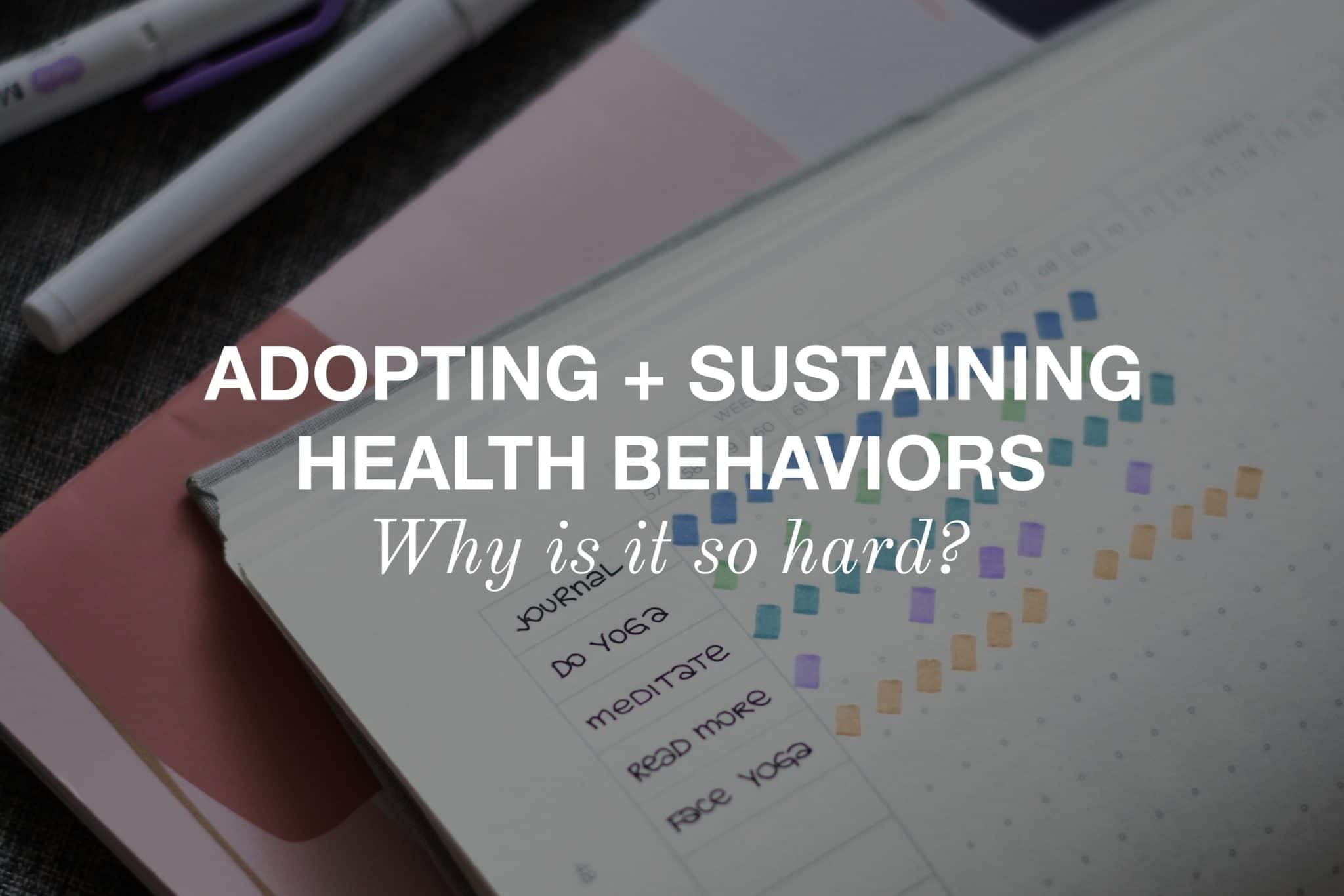This post contains affiliate links. Click here to see what that means! That being said, we only promote authors, products, and services that we use ourselves and wholeheartedly stand by. To learn more about how we earn money here on Autoimmune Wellness, head on over to our Promotional Policy.

Improving our diet and self-care has never been more important. This is critical for people with autoimmune issues or any chronic health problem. In this article I’ll explain why it is hard to change our health behaviors, and what you can do to improve your chance of success.
You know what you are supposed to do, but keep falling off the wagon, going back to old behaviors. Going back to eating sugar, back to junk food or other comfort foods that you know make you feel worse. Moving less and sitting more. Even though you feel better when you are eating the right foods, doing more movement, engaging is a stress reducing practice. But you can’t seem to make those habits stick.
Does that sound like you? Do you need help learning how to sustain the health behaviors you decided to adopt? Let me help. I ran a therapeutic lifestyle clinic at a Veteran Affairs Hospital that helped many people just like you. It can be done.
Changing our automatic health behaviors is a lot of work. Over the years that I have been teaching people in a therapeutic lifestyle clinic how to use a therapeutic lifestyle to treat their chronic health problems my patients have taught me a lot about this journey. The most important observation is that this struggle is within the mind of the person who wants to change their health behaviors. The person needs a lot of mental fortitude to make this journey. So how we do help people acquire the strength, resolve and fortitude? We keep spending more time on what I call the resilience factors to help people identify will resonate for them to create the fortitude they will need for this journey. Here are the top five strategies we use to build up mental fortitude:
- Define your life purpose. This purpose might be to have a beautiful garden, see you daughter or son get married, or graduate from high school or college, or finish a book. What is it that gives you deep pleasure or joy. Your purpose will likely change as you move through life.
- What do you want your health for? This another way of helping you understand what your life purpose to be. How will your health help you achieve that purpose?
- What is the meaning of your illness experience? Is there a gift in your current circumstances? Many of my patients over the decades I have been a physician have taught me that even when they knew their underlying illness was going to kill them, they often still felt their illness was a gift because it gave them clarity for their remaining time. They resolved conflicts with family members, repaired relationships with children or parents. They tied up the important parts of life and let go of the unimportant. What has your illness taught you and your family that has been positive in some way?
- Is your self-talk positive or negative overall? We spend so much time talking to ourselves in our head as the day wears on. Are you telling yourself that you are a good person, working hard, caring about people, or that you can succeed at what you are trying to achieve? Or do you spend time telling yourself that you are a failure, you always fail, you are not worthy or not lovable?
- Are the people around you lifting you up, helping you achieve your goals? Or are the people around you telling you that your goals are stupid, not worthwhile, tempting you, pressuring you to regress back to the health behaviors you are trying to extinguish? How can you spend more time with the people who will lift you up and help you succeed and how can you spend less time with those who would drag you down?
It is a struggle that is won or lost in the mind, the heart and the soul. I have created the Wahls Protocol® Seminar and each year I spend more and more time on the mental and spiritual aspects of health behavior change so that people can have much greater success at ADOPTING and SUSTAINING health behavior changes. During the seminar, we go through all of the resilience factors and practice the same steps I use in my lifestyle clinics. Usually it is an in-person event. This year I am teaching it live, and answering questions live as the content is delivered to you virtually.
Sessions will continue with weekly sessions on Sunday afternoon and Wednesday evening through July 15th. The event still includes skill building practice and small group discussions between peers. The 2020 Wahls Protocol® Seminar is absolutely the most engaging, most interactive and most transformative seminar that we have held to date. We would love to see you there.
















1 comment
I am struggling with exactly what you discuss. Almost 2 years ago I became very tired of taking medication for an autoimmune disorder, hypothyroidism. My disorder was found in an unusual manner and I did not initially look at the opportunities to change diet. Then 2 years ago I decided that I needed to take my own health into account. This was a long journey and is still going on. However, with COVID pandemic it has created a pause in my acupuncture protocols and has left me struggling with my diet and healthy practices. Your message above does show me that I need to ring additional supportive friends in my life to continue my journey.